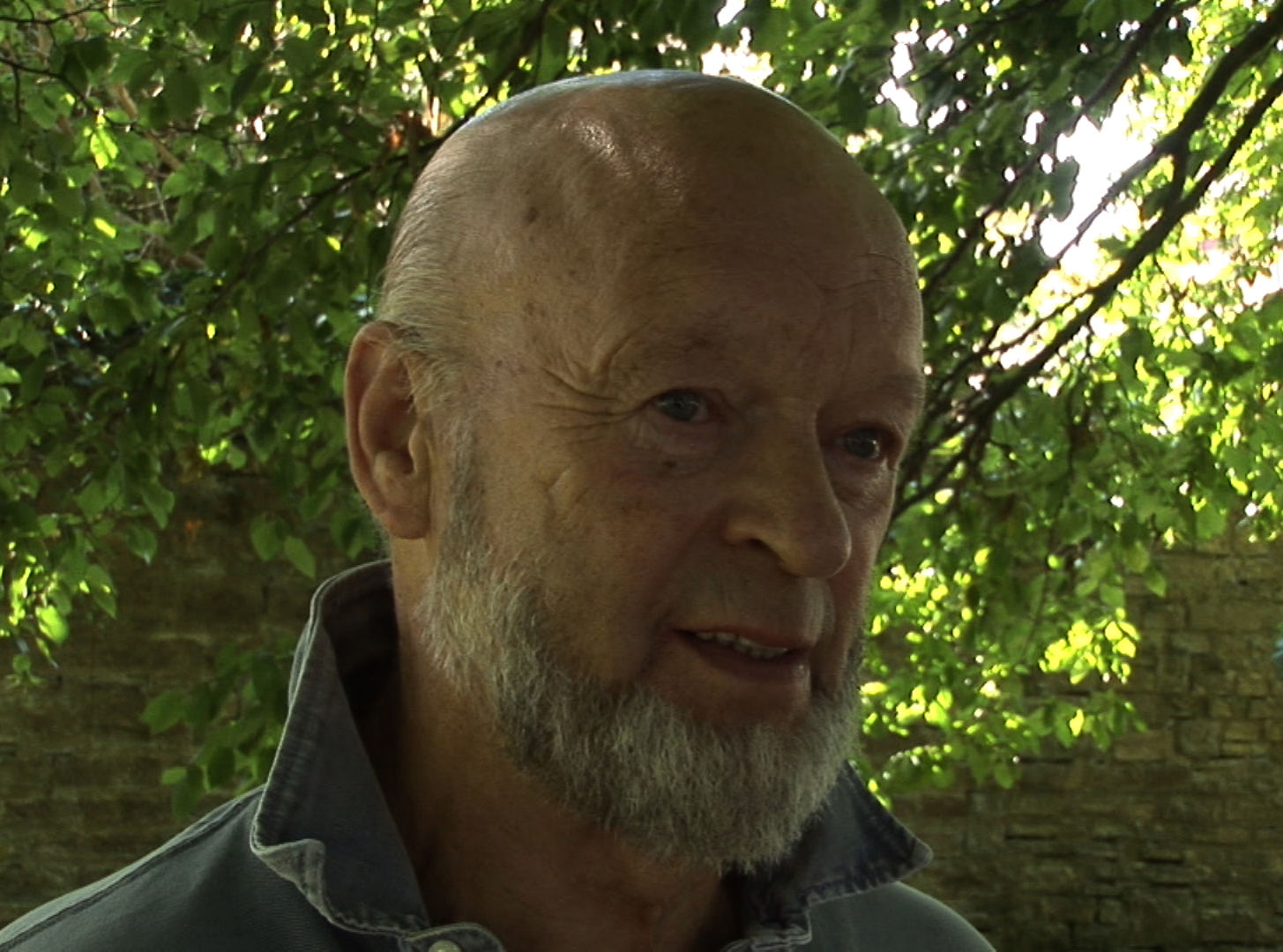When Michael Evis became our patron in September 2010, our profile at the 2011 Glastonbury Festival received a very welcome boost. He also hooked us up with another small and very special charity, Children’s World – more about them later.
We caught up with Michael at the Glastonbury Children’s Festival in August where Laurie Flynn (our chair of trustees) and Michael chatted about music, soil, the world and everything…
 Laurie: What values did you seek to express when you set up the Glastonbury Festival?
Laurie: What values did you seek to express when you set up the Glastonbury Festival?
Michael: Well, gosh! (smiles) Years ago, I was brought up grounded in the fundamental belief in making the world a better place to live in, somehow or another. And although there are millions of problems, I learnt that we have an inherent responsibility to get involved with the quality of other peoples’ lives. So that’s how I was weaned; my family were dairy farmers basically, trundling along, milking cows for centuries. One summer, I went off to a blues festival with a girlfriend of mine. I saw all these hundreds of people there and I thought, my god, there’s a great future here with all the stuff that I believe in, and of course being a crazy music fan as well, I thought that I could turn that into something that was going to benefit society. Okay, that was 1970, so a long time ago, and I was very ambitious and slightly foolish, so I went headlong into it, and so that’s where I am now you see, so that’s the background.
LF: If you were to pick one song or piece of music, or a piece of poetry or something that best expressed your values, where would you start?
ME: Well actually I love Charles Wesley, so probably Love Divine I would say. It is slightly religious but don’t let that put you off. It is a very romantic expression of the quality of life really.
LF: And in that hymn and in the Glastonbury Festival, and in the charitable work that the festival promotes, are some very basic values that speak of protecting the land, and encouraging humane growth among people. Maybe you could summarise a little?
ME: Yes, we farmers are actually green, believe it or not, so we do actually care about our farms and the trees and the hedges, the birds and the wildlife. And the grass of course from which we all live – and the cows and the cattle – they all graze so it’s really important for that grass to be valuable and productive. It used to be all about grass; the quality has to be really good in order for a herd to be successful. So the quality of the earth to a sensible farmer is very important: you don’t pollute it, you don’t spoil it, you don’t spray it. You don’t do things with it that are going to damage the earth because it’s the earth that gives us life.
LF: Do you think our industrial civilisation in general is in balance with our natural environment?
ME: Well, we’ve got a problem haven’t we? We’ve got a problem with pollution. The whole ecology of the countryside and of the world in fact is out of sync. Thankfully there are a lot of people taking positive action and campaigning groups like the Bhopal people, and people round the world that actually care about the oil pollution, the chemical pollution, the mining pollution: coal mining, uranium mining, copper mining and so on. The demands of the world are so great that we can’t cope. There’s a lot to be done, and okay, we’re only scratching the surface at the moment, we’ve got a long way to go.
LF: And you’re hopeful that enough of the human race will wake up to your message?
ME: Yes, I think that they are waking up. The average man or woman on the street is concerned now. Thankfully people are beginning to engage on a political level because these issues are so important to the quality of our lives.
LF: Yes, it’s inspiring to come across the many good examples of people and campaigning groups that try to protect the earth…but in the case of Bhopal, what we have is a corporation which grievously polluted an Indian site which still hasn’t been cleaned up 27 years after the disaster, and an Indian Government which still equivocates about forcing the large multinational corporation to come clean about what it knows about the gas disaster. How does that strike you, that this should have gone on for 27 years?
ME: It’s extraordinary that it hasn’t actually been dealt with. It’s an enormous task to actually complete the clean-up. It’s extraordinary that so many people have been so damaged; their quality of life and also their health, which is even more important. It’s so important to be fit and well, and strong and healthy and then the quality of life comes later doesn’t it. A basic fundamental right is to be healthy. If you’re not healthy, you’ve had it haven’t you? So there’s a huge responsibility for the polluters to actually deal with it.


